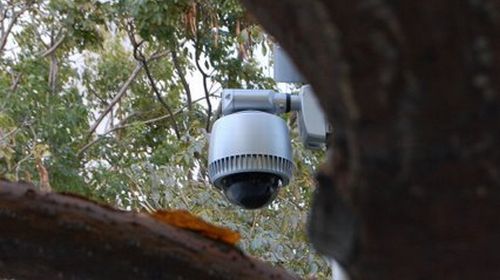
The New York Times and Propublica an editorial last week entitled, ãThatãs Not My Phone, Itãs My Tracker.ã The authors review the sorry state of cell phone location privacy, raise and dismiss privacy-protecting options such as regularly removing the battery, or living without a phone, and conclude that what we should fight back linguistically at least, by calling these devices ãtrackersã rather than phones.
That would certainly be more accurate at the moment and help raise awareness of the current realityãbut it is not only the linguistic framing that we should regard as subject to redefinition. We should redefine what these devices actually are. Really the situation is simple: if cell phone carriers retain the location data that our phones generate as a side effect of how they operate, then they are trackers. If the carriers do not retain that data, then they are not, at least routinely so (though they could still be activated as trackers with a court order). That is why we have demanded that the carriers stop routinely retaining location data. There is absolutely no reason that we should tolerate the retention of that data as normal or acceptableãno reason we should not have smartphones that are not trackers. Renaming our phones is not enough.
We know that cell phone carriers are working to make the most of our location information for their own purposesãsee on how carriers want to exploit this ãgold mine,ã as well as this post I wrote also on this subject. And you can get a more granular glimpse of the kind of work thatãs being done in this video, in which an engineer for IBM discusses how telecoms can monitor customersã use of their phones to predict which customers are planning to change providers.
Also on the Big Data front, Technology Review on one element of the story that weãve known (as I noted in this post) is coming: the democratization of data mining capabilities. Number crunching that recently took 400 minutes on a cluster of 1,000 computers, can now be done on a single laptop in 59 minutes.
One of the most signficant government data mining efforts out there seems to be the Automated Targeting System (ATS). Travel privacy activist Ed Hasbrouckãs lawsuit over that secretive program has ended; he discusses what he and his colleagues at the First Amendment Project have learned and what it means. As they conclude:
Individuals ã even U.S. citizens ã have no right under U.S law to see what ATS records are being kept about them, and no right to know how or according to what algorithms data about themselves is mined, processed, or otherwise usedãÎ
Clearly, the Automated Targeting System is exactly what the Privacy Act was intended to prohibit: a system of persistent secret government dossiers about the legal activities of people who are not suspected of any crime.
The FAA, in response to a FOIA request by EFF, has released thousands of pages of records on drones. EFF has the documents online. I havenãt had time to peruse them in depth, but what was news to me was that Ogden, Utahãs plan to station a blimp for surveillance over a high-crime neighborhood was rejected by the FAA, on safety grounds. Despite all the initial hype over the cityãs plan, I suspected that would be the case as the FAA is still very strict on drone safety. As the FAA to the Ogden police chief,
Your Program Executive Summary addresses a Concept of Operation (CONOPS) where the VIPAR UA [i.e., the blimp] will be utilized in a patrol capacity for nocturnal surveillance within a high crime area of Ogden, UT. The CONOPS describes the launch and recovery of the UA from a Department of Public Safety Building in Ogden at which time control of the UA would be transferred from the ground control station at the launch site to a control station located in the Police Command Center.
Because drones may be used only ãutizing either ground-based observers or airborne visual observers onboard a dedicated chase aircraft,ã Ogdenãs plan did not meet the rules. Still, the Ogden plan was significant because it was one of the first proposed uses of UAVs for persistent, generalized, wide-area surveillance.
Finally, check out this very interesting TED talk by Todd Humphreys on the and some of its implications. Topics covered include millimeter-level accuracy, stalkers, GPS jamming, and the advent of GPS ãdotsã that let us do searches on our belongings the way we now search our email. And looming over it all: privacy.

